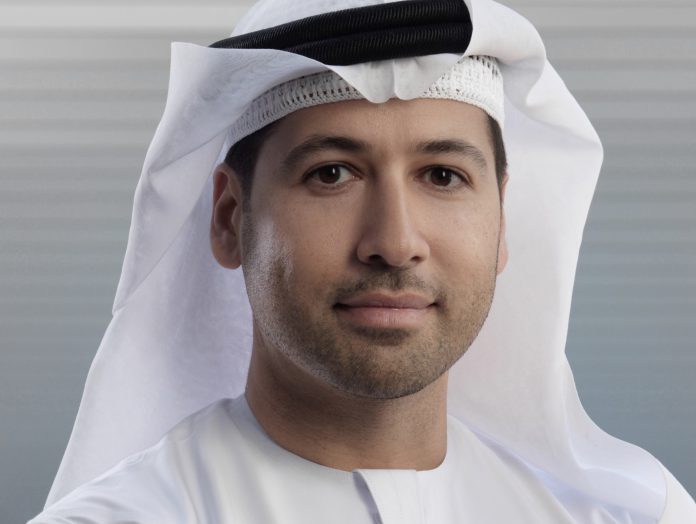From: FinTech Global
The Middle East’s FinTech industry is booming. If innovative startups want to get in on the action, a solid argument can be made for starting in Dubai.
Since 2015, FinTech companies in the Middle East have raised over $1.9bn in funding. While RegTech ventures picked up 20.5% of that funding, businesses in the financial infrastructure, payments and WealthTech segments of the industry as well as those that leverage big data have also raised significant sums.
And more could be to come for the tech industry in the region. For instance, the coronavirus pandemic has been predicted to boost the value of the cybersecurity market in the Middle East so much that it will be worth $29bn by 2025. That would represent an impressive compound annual growth rate of 13.8% from the $15.6bn it is worth in 2020.
Part of the reason why the region’s tech industry has proven to be so successful is due to the fact that the governments in it have made efforts to diversify their economies. It is hardly surprising that many nations are diversifying away from oil and adding new verticals to secure their financial future. FinTech has been tapped as one of the key ingredients in some of these nations’ diversification efforts.
The United Arab Emirates is one of the countries that have taken steps to modernise their economy. In 2004, for instance, the country launched Dubai International Financial Centre (DIFC), which has since become home to the region’s biggest and most comprehensive FinTech ecosystems. FinTechs are part of DIFC Innovation Hub where people work together to change the world of finance. The support includes DIFC FinTech Hive accelerators, incubators, innovation testing license, access to funding sources, mentoring from major financial institutions, cost effective office options and preferential licensing arrangements.
Arif Amiri, chief executive officer of DIFC Authority, believes this type of ecosystem is just what innovative startups in the industry need to thrive. In fact, he says that digitally mature companies are able to leverage ecosystems and have cross-functional teams play critical roles. “This is something new startups and growth stage entrepreneurs recognise, which is why they are not confined to legacy systems or traditional ways of working,” Amiri says.
Moreover, DIFC also serves as a successful launchpad for tech startups looking to expand into the region. “The top global innovation jurisdictions are diverse, vibrant ecosystems with robust soft and hard infrastructure, top talent, a buzzing lifestyle, and make it easy to establish, run and finance businesses,” Amiri argues. “Dubai is at the forefront of these jurisdictions in the Middle East, Africa and South Asia.”
He adds that the UAE city has a lot to offer these ventures. “Dubai’s world-class physical and digital infrastructure offers entrepreneurs and startups easy set up and opportunities to scale up quickly,” he says. “A pro-business regulatory environment and connectivity allows entrepreneurs to go from licensing to launch or test the market through a strong network of incubators and accelerators.”
And the DIFC plays a massive role in this effort. “DIFC has been recognised for its role in driving innovation and digitalisation,” Amiri says. “The Centre is credited with rapidly expanding the financial services sector and shaping the future of finance with the support of its client ecosystem, world-class regulatory and legal framework. Our innovation strategy enables innovators and entrepreneurs who join via the new Innovation License to connect with the region’s largest, most diverse community of financial institutions and service providers.”
These efforts have grown even more crucial because of the coronavirus pandemic. Luckily, Dubai recently introduced a new Innovation Licence that can help nurture FinTech startup success stories. Essentially, DIFC’s Innovation License is a way to empower market-leading and innovative tech startups to efficiently tap into the Middle Eastern, African and South Asian region.
“DIFC’s innovation strategy relies on regulatory enablement, incubation and acceleration, business building, investment and talent development,” Amiri explains. “In line with Dubai’s innovation agenda and recognising the importance of post Covid-19 economic growth, the new Innovation License will support innovation and entrepreneurship. We believe in supporting the next wave of economic growth that will come from innovation.
“This initiative affirms our commitment to enhancing the UAE’s position as the preferred destination for global talent and entrepreneurs. Entrepreneurs, visionaries, inventors and techies are very welcome in Dubai and at DIFC. They can join over 230 FinTech and innovation firms in the MEASA’s largest financial free zone. We promise to help them grow and scale their business.
Copyright © 2018 RegTech Analyst






